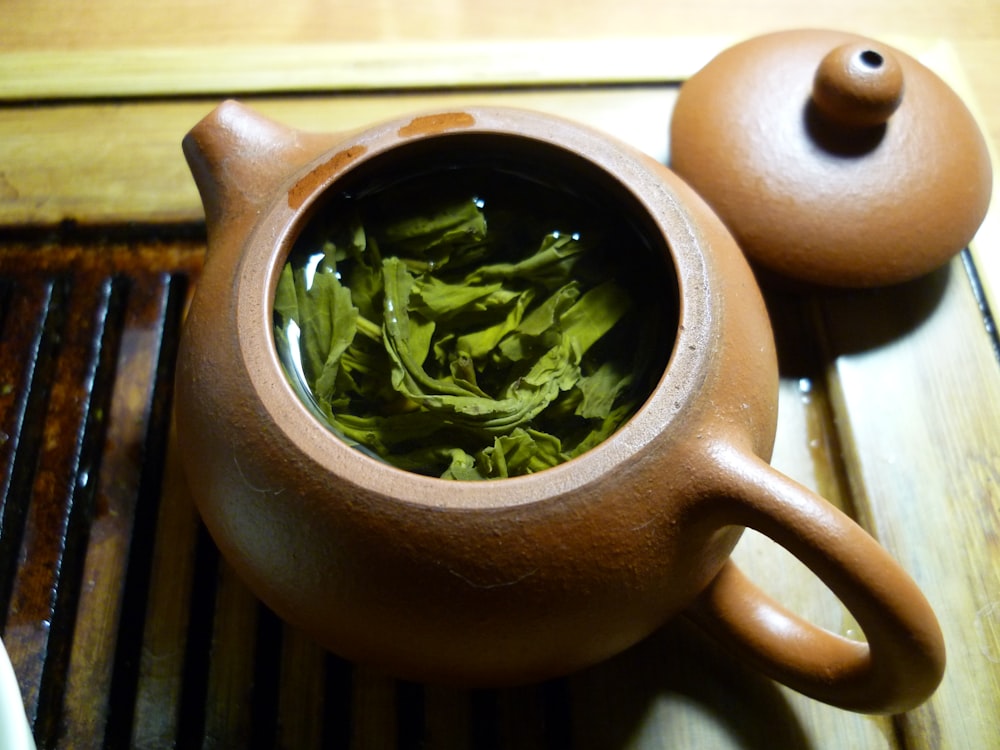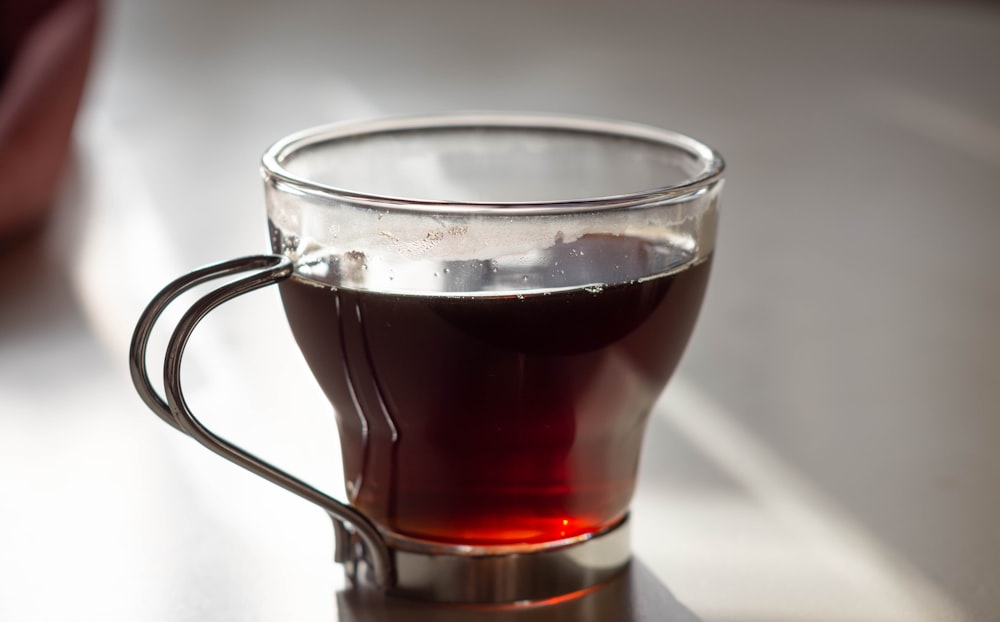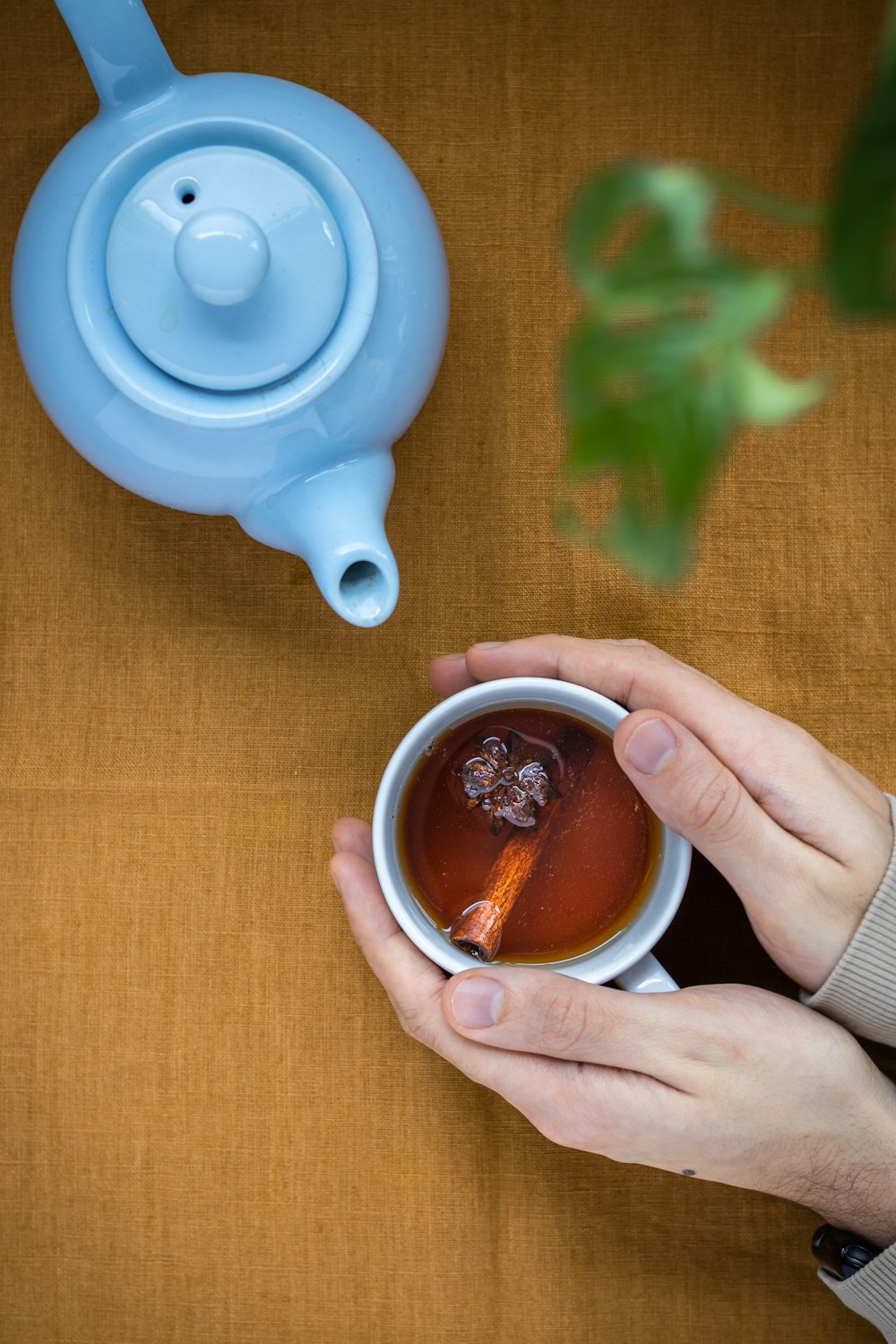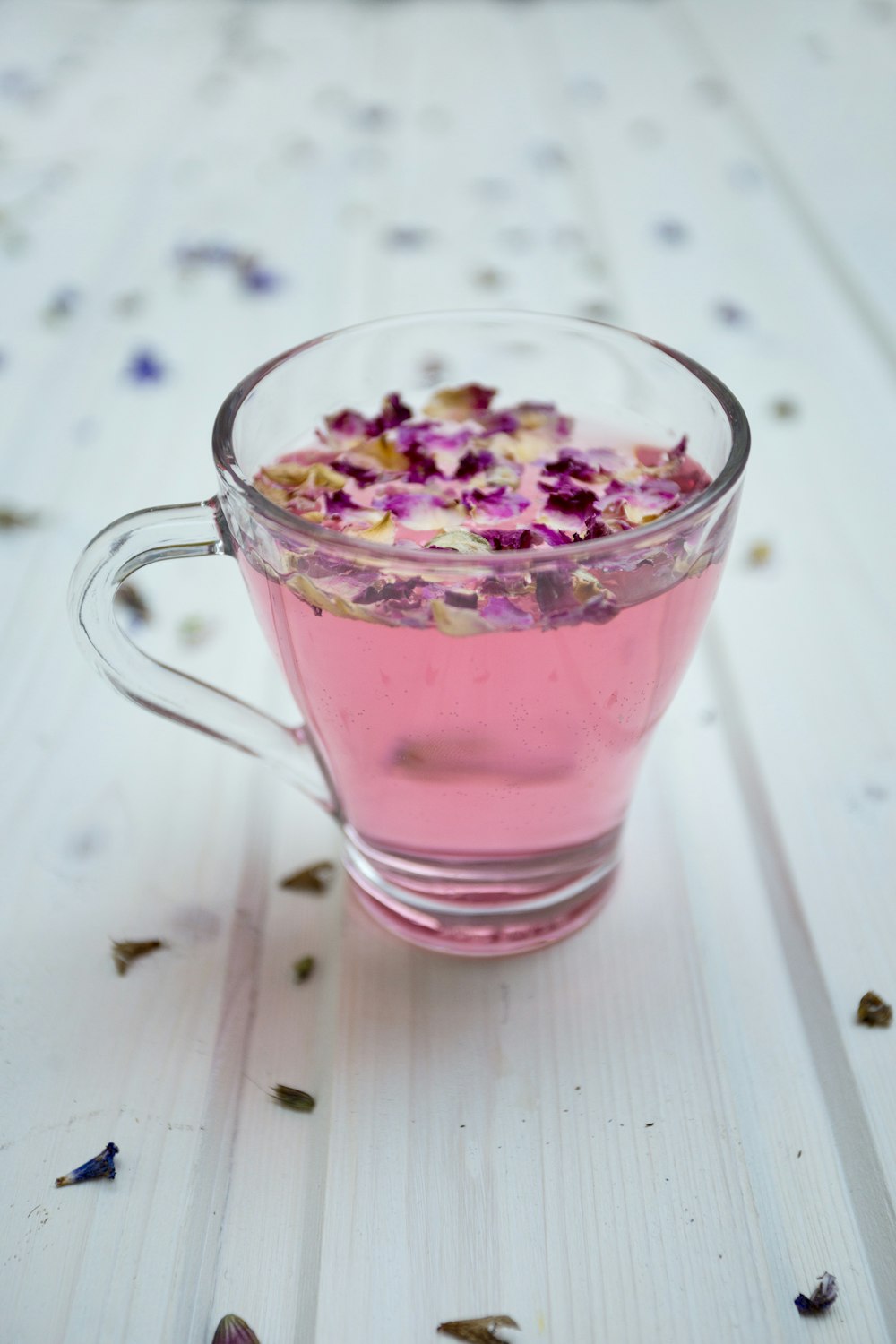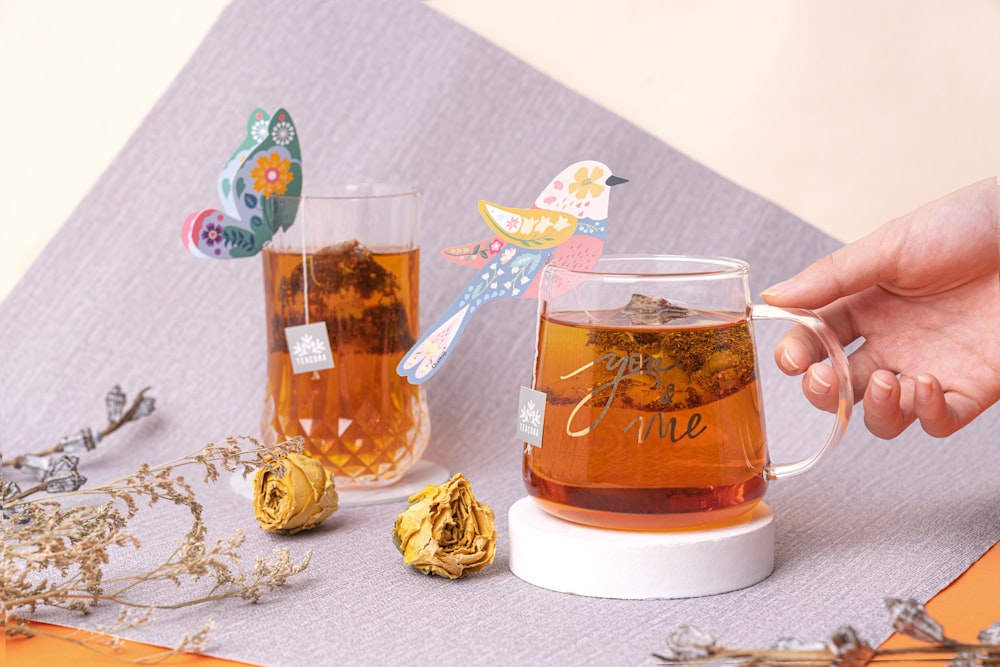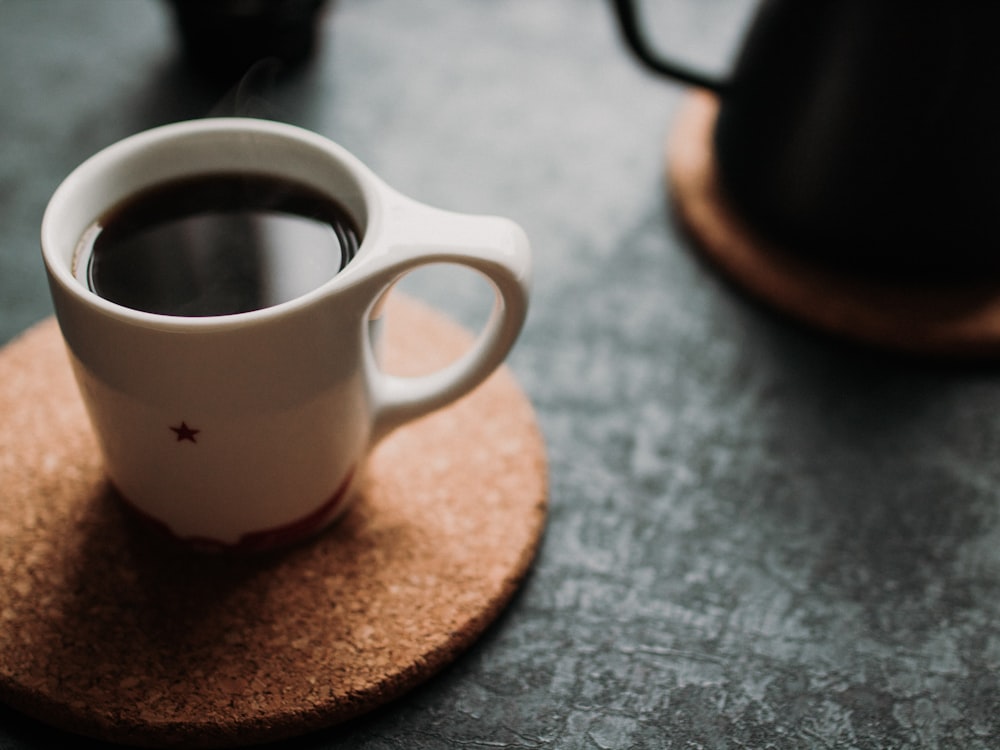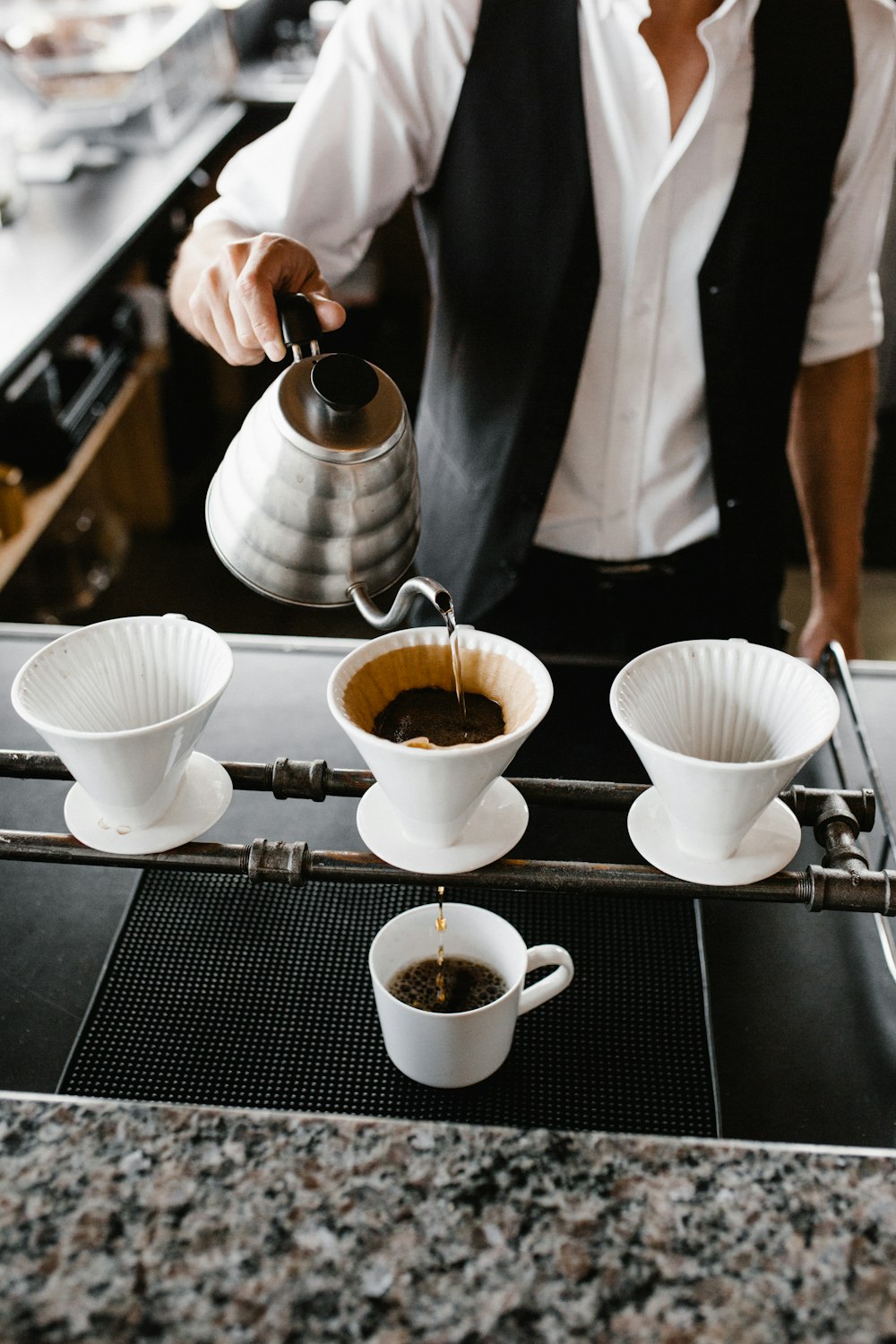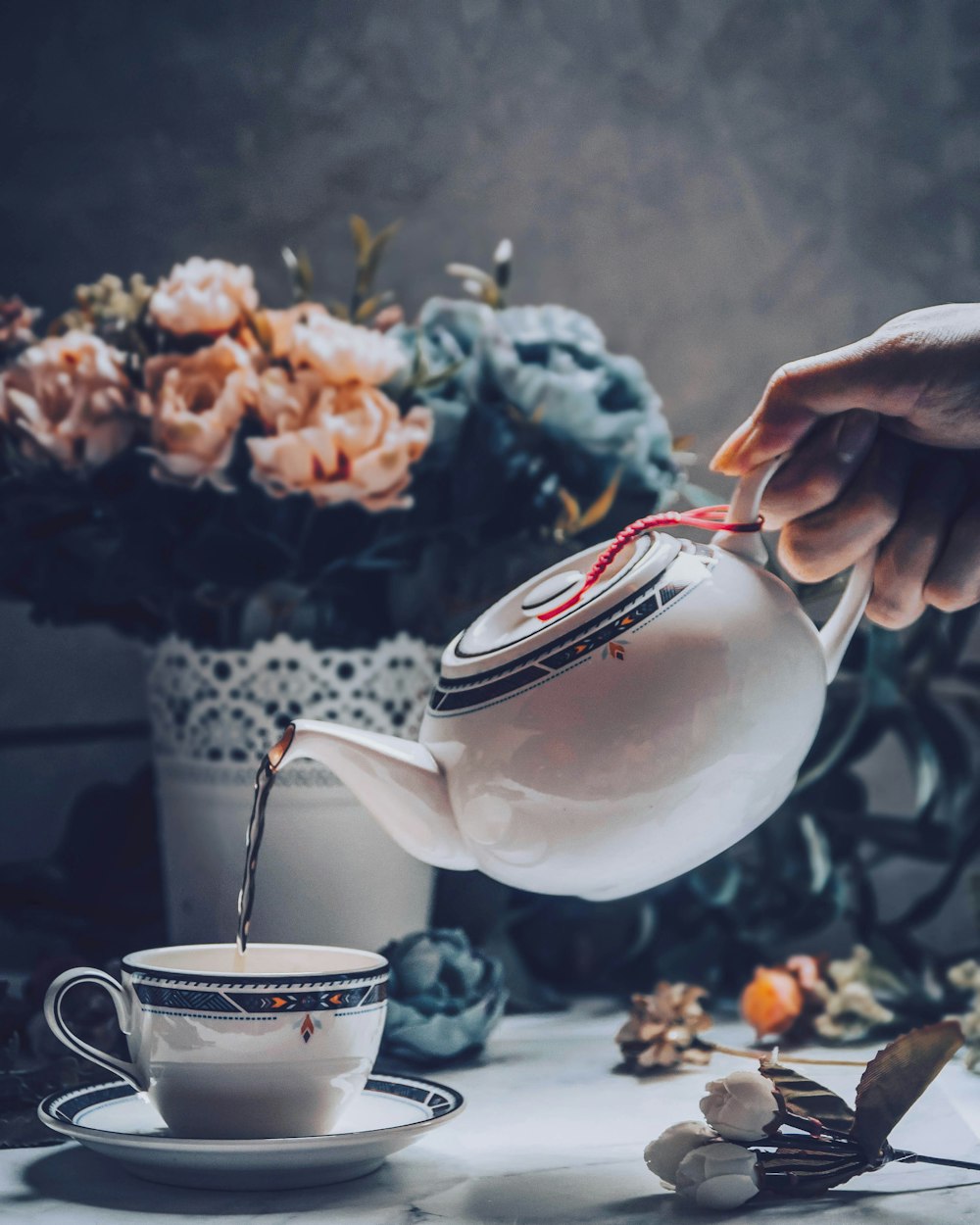Tea vs. Coffee: What Works Best for your Health?

Our days are loaded with appointments and tasks. You step out of bed, and the agenda is already full. Complete the report, send it to your boss, attend team meetings, take your children from school, and – if you have some time left – do physical activity or cook dinner.
At first glance, it looks like a hectic routine: how can you manage to do everything? It’s not always easy to have a 100%-full battery to go through your days. While acting on your diet and introducing relaxing practices like meditation can improve your stress management, sometimes you need a good boost to start the day with a proactive and motivated attitude. What’s better than getting this boost from a good cup of tea or coffee? These drinks can give you the attention and focus you need to deal with your overloaded days.
A cup of hot coffee is one of the most enjoyable ways to wake up and get an immediate attention peak. If you’re a coffee-lover, you know what I mean. Drinking coffee can be a ”sacred” moment – whether you’re on your sofa getting ready for your day or in a coffee shop surrounded by strangers. What about tea? Sipping it is always a pleasure: a warm, flavored tea is a drink you can enjoy every time of the day – in the morning, after lunch, for a break. It’s perfect also in the evening: a good herbal tea to relax after a day at work can be simply amazing!
Not only do these drinks help you wake up, but they also come with plenty of further benefits. In this article, we’ll look at the pros and cons of tea and coffee and discuss how these drinks can impact your overall health. Tea vs. Coffee: is there a winner?
One plant, many kinds of tea
Tea is one of the most consumed drinks in the world, and for a good reason! Its taste can span over a wide range – from fruity and delicate to bitter or spicier – and drinking it is often associated with relaxing moments. Think about a hot, good tea on a cold winter afternoon.
Did you know that all types of tea come from the same plant (Camellia sinensis)? Then, you might wonder why we have so many teas in the world. The main difference between the different types of tea comes from how the leaves are processed after they’re picked. Other factors may influence the tea type: geography (where the plant grows) and growing conditions. It’s worth mentioning that drinks like herbal tea or rooibos are not technically tea (they come from different plants and don’t contain caffeine). Still, they’re included in the category as the way of making them (steeping them in hot water) is the same as tea.
With so many kinds of tea available, you may ask yourself which one works better for your health. The answer is that all types of tea have similar benefits – due to the presence of caffeine and antioxidant substances (polyphenols). There are, of course, some differences among them, but they’re pretty slight. Let’s see what the main characteristics of the various tea types are.
Green tea
The name green tea comes from its appearance: its leaves are green – even if most green teas can have several other shades, such as pale or darker yellow. To make green tea, leaves undergo a process called “firing,” which prevents oxidation. The best producers and manufacturers of green tea are China and Japan.
Among all the types of tea, this variety is the richest in polyphenols due to the fermentation process used to make it. A common belief is that green tea has less caffeine than black one, but it’s not precisely correct. The amount of caffeine depends on the steeping time. Usually, green tea requires less time to steep than black tea, and that’s why it’s lower in caffeine.
Black tea
Black tea is a type of tea whose leaves have been heavily oxidized. To have an idea of how oxidation works, think about an apple when it’s open: it becomes black. Similarly, the oxidation process is responsible for tea leaves’ dark appearance, and it also changes the aroma and flavour.
Though it originated in China, the leading producers of black tea are now India and Sri Lanka. This type of tea is one of the most exported in the world; it’s very popular in the West (especially in the UK), and it’s the primary component of other blends (such as earl grey or masala chai). To make black tea, you usually need to steep it with water for around six minutes: this relatively long procedure explains why black tea contains more caffeine than the green variety (the levels of caffeine increase with steeping time).
Chai tea
Chai tea (or masala chai) is India’s traditional drink and has lately become a popular beverage in Western countries. Masala means “blend of spices:” in fact, spices are essential components of this tea – in particular, cardamom, ginger, cinnamon, and clove can’t miss. Other essential ingredients are milk, sugar, and tea (usually black tea).
White tea
Unlike black or green tea, white tea undergoes neither oxidation nor firing. Due to that, white tea can have a more delicate flavor. It doesn’t have an astringent effect, nor does it taste bitter, so that you can put a bit more leaves into the blend. The flavours can span over a vast range – from fruity to nutty or woodsy.
Matcha tea
Matcha tea is a Japanese green tea, very different from all other types. The most noticeable difference is that matcha tea comes as a powder (due to its production technique) and not as leaves. The leaf material is milled between two stones until obtaining a very fine powder (the matcha), which is consumed as it is. Unlike other teas, you don’t steep matcha tea with hot water, but you drink the leaves.
Making matcha tea is easy: all you need to do is add hot water to the powder and mix. Otherwise, you can use it to prepare smoothies or bakeries or sprinkle it over your Greek yogurt.
Matcha contains more caffeine than other kinds of tea, but it doesn’t give you the same effects as coffee (since caffeine release is much slower compared to coffee). Instead, matcha appears to help relax and alertness. It’s used in Japanese traditional tea ceremonies, and it’s believed that Buddhist monks used to drink it to meditate.
Herbal tea
All the other beverages obtained by plants and steeped in a way similar to tea fall under the name of “herbal tea.” Some of the most common herbs used to make herbal tea blends are rooibos, chamomile, ginger, fennel, or hibiscus. You can either drink them alone or mix them.
Herbal tea types contain antioxidants and other nutrients with beneficial properties. In particular, such blends improve digestion, support the immune system, and improve blood circulation. As most herbal teas don’t contain caffeine, you can enjoy them at any moment of the day. Some of them are perfect in the evening to relax after a full day at work.
Rooibos
Rooibos, also known as red tea, is a caffeine-free infusion with a sweet and delicate taste. It’s optimal for everyone; you can drink at every moment of the day. Rooibos has similar properties to other tea types: it’s rich in antioxidants, reduces cholesterol, and improves digestion. Studies showed that to make the most of its antioxidants properties, you should steep it 10 minutes or longer. As it doesn’t contain caffeine or theine, you can drink it in the evening without worrying about trouble sleeping.
Pros and cons of drinking tea
Very often, we associate drinking tea with health benefits. Tea’s main components, which make it so good for your body, are caffeine and polyphenols.
Polyphenols are molecules with antioxidant properties. Oxidants are a natural product of cell metabolism; they can be harmful to the body at high levels, as they can stick to your blood vessels and increase CVD risk. By neutralizing oxidants in your body, polyphenols help prevent cardiovascular disease, and they appear to prevent cancer.
Drinking tea can benefit your mood: it has calming effects and improves stress relief, and studies show it decreases the risk of depression. It is also associated with increased attention and alertness. Tea helps boost your brain function due to caffeine – which is known to have stimulant effects on your brain – and the amino acid L-theanine, which increases serotonin and dopamine levels, thus promoting relaxation.
It’s worth saying that tea has a lower caffeine level compared to coffee, so its effects are much lower. The caffeine content in a cup of tea can vary due to different factors:
- Type and amount of leaf used. Broken leaves have more caffeine than whole leaves, and using more leaves will release more caffeine in the cup.
- Water temperature. The hotter the water, the faster it releases caffeine from the leaves.
- Steeping time. the amount of caffeine increases if you steep tea longer.
In general, tea appears to have low harm on your body. There are, however, some cons that are worth mentioning. Consuming sweetened tea can be unhealthy, as it’s loaded with added sugars. Additionally, tea can provoke dental staining. Drinking too much tea can make your teeth have a yellowish-brown stain, especially if you use a mouth rinse containing chlorhexidine.
What’s the best tea for you?
Drinking tea has many health benefits, but it’s not a magic tool that makes you get rid of your problems. You should always couple it with a healthy lifestyle.
How to choose the best tea for you? Overall, all types of tea have similar benefits with slight differences. To fully enjoy such benefits, however, you should drink tea as it is. By adding sugar, milk, or sweeteners, you risk introducing unnecessary calories and increasing your blood sugar levels.
It seems that whether you choose one tea over the other depends on other factors: your taste, of course; the time of the day can influence your choice, too. Black, stronger tea is perfect for breakfast, while green tea is optimal at any moment of the day. At night, you might prefer a warm herbal tea to relax and get ready to sleep.
Coffee: drink black coffee to fully enjoy its benefits
Drinking coffee in the morning is perhaps one of the most common habits worldwide. It’s a quick, effective, and powerful way to start the day. While most of us drink coffee mainly to wake up, there are additional benefits this drink brings.
To fully enjoy its benefits, you should drink black coffee – that means coffee alone. Most of the time, though, you don’t drink coffee as it is. Since it has a very bitter taste, you add milk, sugar, or some sweetener to make it more enjoyable. Here are a few tips for choosing a coffee that tastes good and doesn’t require milk or sweeteners:
- Select the coffee beans carefully. Beans can make a significant difference in the taste of what you’re drinking. The most popular coffee beans are Arabica and Robusta. While Arabica has a more enjoyable taste (the beans are sweeter, and you can drink it as it is), Robusta contains more caffeine, and it’s stronger.
- Choose roasting levels. There are different roasting levels (light, medium, or dark roasted beans), each with varying amounts of caffeine. It may appear counterintuitive, but light roasted beans are those with the highest caffeine level, while dark roasted beans contain the lowest caffeine levels. As you might guess, the medium roasted beans are in the middle. Medium roasted beans are the ones used to make Espresso.
- Be aware of the roasting date. The fresher the coffee, the better. Thus, look for beans that have a roasting date on their label. Once you buy it, its flavor is maximum in the first 15 days; afterward, coffee starts to lose its freshness. have in mind what kind of coffee you’re going to make.
If you’re not home, it may be challenging to find the perfect blend. You can ask for a black coffee or a coffee without sugar, cream, or sweetener in these cases. Said so, there’s nothing wrong with enjoying a cappuccino or an iced coffee once in a while.
Pros and cons of drinking coffee
The most immediate effect of coffee is that it wakes you up. This “wake-up call effect” is due to caffeine, which acts as a stimulant for your central nervous system. As a cup of coffee contains about twice the dose of caffeine with respect to tea (80-105 milligrams compared to 40 milligrams), coffee’s stimulating effect is stronger than tea.
Caffeine helps improve alertness and performance (in sport, study, and work); it also increases metabolism and fat burning and reduces hunger, thus promoting weight loss. Studies showed that coffee might prevent Alzheimer and metabolic syndrome, decrease the risk of depression and type 2 diabetes. Like tea, coffee is rich in polyphenols. These molecules act as antioxidants and may prevent cardiovascular disease and cancer.
However, drinking a lot of coffee might bring some drawbacks. High consumption can increase heartbeat and anxiety and influence sleep quality. Studies show that drinking too much coffee during the day can disrupt sleep – that’s not a surprise, as caffeine has a stimulatory effect. It can also cause heartburn and provoke diarrhea in sensitive subjects.
According to guidelines, recommended coffee intake is about three 8 oz cups (237 mL) of brewed coffee per day (equivalent to 400 mg of caffeine) in adults. Children should abstain from drinking coffee or have a minimal intake. Caffeine can negatively affect pregnant women or women who’re nursing: if you’re in these categories, you should limit its intake to no more than 300 mg per day.
Combining tea and coffee with food supplements
As we’ve seen, tea and coffee can contribute to your overall well-being, but you need to couple them with a healthy lifestyle. You can’t expect magical results by drinking litres of green tea per day. A balanced diet, regular exercise, and low stress levels are essential requisites.
Supporting your body through healthy choices and keeping a balance is vital. You can do so by adopting each day the right decisions in the direction of your happiness. When you struggle to keep a balanced diet, you can introduce the nutrients you lack through supplements. Dietary supplements can help you improve your health and, combined with regularly drinking tea or coffee, give you several benefits.
Remember that the use of supplements must not substitute medications and that only a physician or a doctor can tell you whether to take them or not.
Greens nutritions
If used wisely, supplements can have plenty of benefits on your energy levels, weight control, and immune system. Our Greens Nutrition is a blend of nutrients that contribute to combat fatigue, reduce hunger, and improve your immune system. Taking one capsule of this supplement is equivalent to 5-7 servings of fruits and veggies.

Greens nutritions has a unique formula that blends antioxidants, prebiotic fiber, digestive enzyme complex, probiotics, and natural herbs. Among its ingredients, there are some superfoods with plenty of beneficial properties:
- Acai berries. Acai berries are among the most nutritional foods you can find in nature. They contain tons of antioxidants and nutrients that support overall health: among them, fatty acids, especially omega-3, oleic, linoleic, and palmitic acids.
- Ginger root. Ginger has a lot of benefits on your digestive and immune system. It acts by warming your body from within and is perfect whenever you’re sick.
- Shiitake mushrooms. These Asian mushrooms support your body’s inflammatory response and keep blood pressure within normal ranges.
- Spirulina. Thanks to its protein and vitamins concentration, spirulina is classified as “the most nutrient dense food on the planet.” It appears to have beneficial effects on different health conditions, such as diabetes, high cholesterol, and allergies. And it can reduce fat cells in the body and promote weight loss.
Tea vs. Coffee: it’s a draw!
In conclusion, both coffee and tea appear to have several benefits (and some drawbacks). So, no choice is better than the other: according to the specific time of the day, your mood, or other factors, you might choose a good black coffee or a warm cup of tea.
While coffee has a most immediate and stimulating effect, drinking tea appears to bring similar alertness and an increased work performance. The difference arises when it’s time to go to sleep: people who drink more coffee during the day are more likely to experience insomnia or trouble sleeping.
According to science, both drinks have many benefits on your mood, as they act to lower your risk of depression. Tea (especially herbal blends and tisanes) also has calming effects and helps you relax. As already said, drinking tea or coffee has plenty of benefits on cardiovascular health, as these drinks are loaded with antioxidants. There’s some evidence that such drinks (mainly tea) may protect against developing cancer.
Drawbacks are associated with possible irritation, mainly provoked by caffeine: drinking too much coffee can irritate your stomach and bowels and increase your anxiety levels. On the other side, tea can increase your risk of tooth staining.
But, besides science, there are many additional factors, and it’s worth mentioning that everyone reacts differently. Our bodies are unique, and so our stress response, immune system, or heart health.
Drinking a couple of coffees per day or sipping some hot tea appear to have pretty much similar effects. In conclusion, we can say there’s no winner for this battle – it’s a draw! There’s enough space in your diet to drink both – as long as you don’t exaggerate, that’s fine. Remember that your well-being depends on a series of factors. Drinking tea and coffee must be coupled to healthy choices: a balanced and varied diet, regular physical activity, or stress-relieving techniques.


